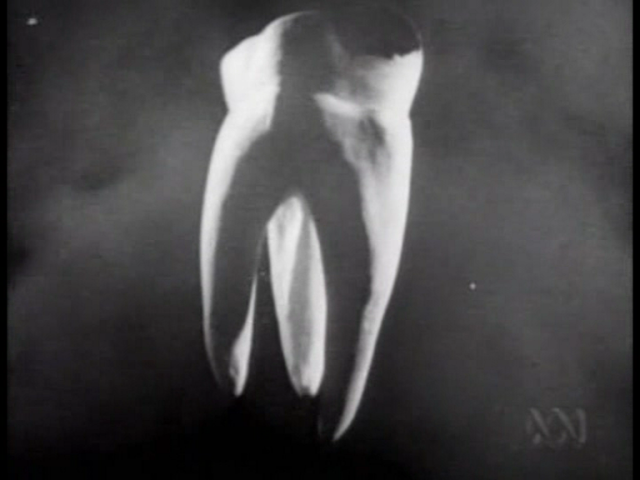
I've only seen two Berthold Viertel films and already I'm obsessed. The Passing of the Third Floor Back mesmerized me, and now 1934's Little Friend has entranced me. A minor sensation in its day, the film launched a child star called Nova Pilbeam upon the British public. Hitchcock snapped her up as the kidnapped kiddie in his hit The Man Who Knew Too Much, and a few years later provided her first grown-up leading role in Young and Innocent. Little Nova (justly named—a bright new star) only kept acting until 1948's Counterblast, an indifferent spy thriller, and has kept out of the limelight in more recent years. She'll be 90 in November.
In addition to her acting work, Nova's personality seems to have inspired the stroppy prima donna in Christopher Isherwood's novel Prater Violet, inspired by his work on Little Friend's screenplay, and also the ebullient thespian Cora "Corky" Pirbright who enlivens several of PG Wodehouse's Jeeves and Wooster novels, in which she contrives to cause maximum havoc with minimum awareness, even as her shaggy dog, Sam Goldwyn, menaces all and sundry (leading to amusing sentences about Sam Goldwyn bounding through the French windows and biting somebody on the ankle). Whether these portrayals are in any way accurate is sadly beyond the scope of this article.

Little Friend's reputation faded perhaps even sooner than its star's fame. Whether this was caused by the film's unavailability, or whether it caused it, I don't know. Quite possibly the film's portrayal of a middle-class 1930s childhood came to seem quaint rather quickly. But this is one of those rare films which takes children seriously, allowing that some of the problems that so vex them may actually be as troublesome as they appear to the child.
Nova plays Felicity Hughes, a little girl whose parents are on the brink of divorce. To make things worse, they are also slaves to a Victorian view of childhood as a state of blissful innocence, so they have no idea that their daughter is entirely aware of the emotional turmoil around her. Felicity may be innocent in many ways, but she's neither stupid nor blind and deaf. The situation builds to a crisis with mummy and daddy reliably doing the wrong thing at every turn, believing they're keeping Felicity in the dark, and believing that's for the best. The drama creates a slowly accumulating sense of anxiety, and considerable anger at the parents, especially the meandering mum, who's fallen for a man of the theatre (it's he who smarmily refers to Felicity as his "little friend").
The film does go rather horribly wrong at the end, with Felicity attempting suicide and thus preventing her parents' divorce, a rather irresponsible message to send out to the audience, one would have thought, and a somewhat dishonest one too. But the preceding scenes have considerable bite and verve, as well as aesthetic merit: Viertel can make a set-piece out of two people sitting in chairs.

Nova Pilbeam is a remarkable creature, like a perfect tiny woman. Her eyes are intense, fierce, her face barely restrains them from bouncing out and attacking us. She's completely believable, but as what? To the extent that her performance shows any signs of effort, it's in behaving like a normal child that Nova has difficulty. When she's being herself, a diminutive Martian invader, she's utterly convincing, if a little disconcerting. As one who must restrain an impulse to savage violence whenever Celia Johnson's posh brats besmirch the screen in Brief Encounter, I was grateful for Nova's extra-terrestrial sang-froid, since the prospect of a well-to-do sprog called Felicity as precocious protagonist is not one I'd normally welcome. She really is odd. She doesn't even appear small, just a little further away than everyone else, although she's paradoxically always right in front of us, focusing our attention like a monkey with a laser.
As a character, Felicity is pretty winning too, especially as she's up against such selfish, incompetent adults. And the film is advanced on the subject of class too. the most heroic figure is Felicity's own little friend, Leonard (Jimmy Hanley), a cockney ice-cream merchant, slightly older than her, who saves her from a traffic accident. Felicity invites him to her birthday party, to the horror of her nanny and the snobbish other children. Quite how she's avoided soaking up their revolting class prejudices is unclear, but we'll let that go. And I know, I'm a fine one to talk, since I've just admitted to an urge to take a cudgel to fictional rich children. What can I say? I am large, I contain multitudes. So those kids better watch it.
The director also serves up a fantastic scene at the theatre, where Felicity sees her mum's fancy-man as pantomime villain. This is the best panto scene outside of The Elephant Man, and like Lynch, or like Busby Berekeley staging a musical number on an infinite stage, Viertel doesn't worry about how this magic would be achieved in a real play: he just shows us magic.

But Viertel's finest moment is arguably the film's opening, a delirious dream sequence that jumbles together pure abstraction with images from Felicity's previous day: a giant floating tooth tells us she's been to the dentist; a flying bicycle tells refers forward to her approaching birthday. I wish Viertel had returned whole-heartedly to this kind of sequence when Felicity tries gas herself: I might even have forgiven the film's apparent endorsement of suicide attempts as a neat technique for kids to get their own way.
***
The Forgotten is a regular Thursday column by David Cairns, author of Shadowplay.